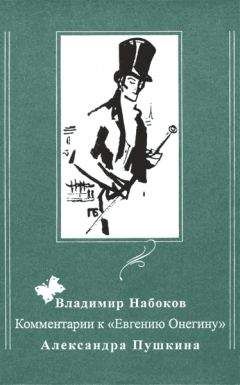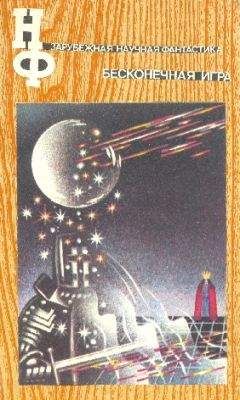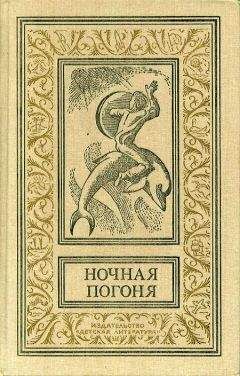V
And the far capital's glitter and noisy feasts
having forgotten in the wilds
of sad Moldavia,
4 she visited the humble tents
of wandering tribes;
and among them grew savage, and forgot
the language of the gods
8 for scant, strange tongues,
for songs of the steppe dear to her.
Suddenly everything around
changed, and lo! in my garden she appeared
12 as a provincial miss,
with a sad thought in her eyes, with a French
book in her hands.
And now my Muse for the first time
I'm taking to a high-life rout;44
at her steppe charms
4 with jealous apprehensiveness I look.
Through a dense series of aristocrats,
of military fops, of diplomats
and haughty dames, she glides; now quietly
8 she has sat down and looks, admiring
the noisy crush,
the flickering of dress and speech,
the apparition of slow guests
12 in front of the young hostess,
and the dark frame of men
around ladies, as about pictures.
She likes the stately order
of oligarchic colloquies,
and the chill of calm pride,
4 and this mixture of ranks and years.
But who's that standing in the chosen throng,
silent and nebulous?
To everyone he seems a stranger.
8 Before him faces come and go
like a series of tedious specters.
What is it — spleen or smarting morgue
upon his face? Why is he here?
12 Who is he? Is it really — Eugene?
He, really? So, 'tis he, indeed.
— Since when has he been blown our way?
Is he the same, or grown more peaceful?
Or does he still play the eccentric?
Say, in what guise has he returned?
4 What will he stage for us meanwhile?
As what will he appear now? As a Melmoth?
a cosmopolitan? a patriot?
a Harold? a Quaker? a bigot?
8 Or will he sport some other mask?
Or else be simply a good fellow
like you and me, like the whole world?
At least here's my advice:
12 to drop an antiquated fashion.
Sufficiently he's gulled the world...
— You know him? — Yes and no.
— Why so unfavorably then
do you report on him?
Because we indefatigably
4 fuss, judge of everything?
Because of fiery souls the rashness
to smug nonentity is either
insulting or absurd?
8 Because, by liking room, wit cramps?
Because too often conversations
we're glad to take for deeds,
because stupidity is volatile and wicked?
12 Because to grave men grave are trifles,
and mediocrity alone
is to our measure and not odd?
Blest who was youthful in his youth;
blest who matured at the right time;
who, with the years, the chill of life
4 was gradually able to withstand;
who never was addicted to strange dreams;
who did not shun the fashionable rabble;
who was at twenty fop or dasher,
8 and then at thirty, profitably married;
who rid himself at fifty
of private and of other debts;
who gained repute, money, and rank
12 calmly in turn;
about whom lifelong one kept saying:
N. N. is an excellent man.
But it is sad to think that youth
was given us in vain,
that we betrayed it every hour,
4 that it duped us;
that our best aspirations,
that our fresh dreamings,
in quick succession have decayed
8 like leaves in putrid autumn.
It is unbearable to see before one
only of dinners a long series,
to look on life as on a rite,
12 and in the wake of the decorous crowd
to go, not sharing with it either
the general opinions or the passions.
When one becomes the subject
of noisy comments, it's unbearable
(you will agree) to pass among
4 sensible people for a feigned eccentric
or a sad crackbrain,
or a satanic monster,
or even for my Demon.
8 Onegin (let me take him up again),
having in single combat killed his friend,
having without a goal, without exertions,
lived to the age of twenty-six,
12 irked by the inactivity of leisure,
without employment, wife, or occupation,
could think of nothing to take up.
A restlessness took hold of him,
the inclination to a change of places
(a most excruciating property,
4 a cross that few deliberately bear).
He left his countryseat,
the solitude of woods and fields,
where an ensanguined shade
8 daily appeared to him,
and started upon travels without aim,
accessible to one sensation;
and to him journeys,
12 like everything on earth,
grew boring. He returned and found himself,
like Chatski, come from boat to ball.
But lo! the throng has undulated,
a murmur through the hall has run....
Toward the hostess there advanced a lady,
4 followed by an imposing general.
She was unhurried,
not cold, not talkative,
without a flouting gaze for everyone,
8 without pretensions to success,
without those little mannerisms,
without mimetic artifices....
All about her was quiet, simple.
12 She seemed a faithful reproduction
du comme il faut.... ([Shishkov,] forgive me:
I do not know how to translate.)
Closer to her the ladies moved;
old women smiled to her;
the men bowed lower, sought
4 to catch her gaze;
maidens before her passed more quietly
across the room; and higher
than anyone lifted his nose and shoulders
8 the general who had come in with her.
None could have called her
a beauty; but from head to foot
none could have found in her
12 what is by autocratic fashion
in the high London circle
called “vulgar.” (I'm unable —
— of that word I am very fond,
but am unable to translate it; in our midst
for the time being it is new
4 and hardly bound to be in favor;
it might do nicely in an epigram....
But to our lady let me turn.)
Winsome with carefree charm,
8 she at a table sat
with brilliant Nina Voronskóy,
that Cleopatra of the Neva;
and, surely, you would have agreed
12 that Nina with her marble beauty
could not — though dazzling —
eclipse her neighbor.
“Can it be possible?” thinks Eugene.
“Can it be she?... But really... No...
What! From outback steppe villages...”
4 and a tenacious quizzing glass
he keeps directing every minute
at her whose aspect vaguely has
recalled to him forgotten features.
8 “Tell me, Prince, you don't know
who is it there in the
framboise beret
talking with the Spanish ambassador?”
The prince looks at Onegin:
12 “Aha! Indeed, long have you not been in the
monde. Wait, I'll present you.”
“But
who is she?” “My wife.”
“So you are married! Didn't know before.
How long?” “About two years.”
“To whom?” “The Larin girl.” “Tatiana!”
4 “She knows you?” “I'm their neighbor.”
“Oh, then, come on.” The prince goes up
to his wife and leads up to her
his kin and friend.
8 The princess looks at him... and whatsoever
troubled her soul,
however greatly
she was surprised, astounded,
12 nothing betrayed her,
her
ton remained the same,
her bow was just as quiet.





